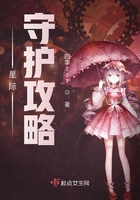Nor was it merely from the side of the Catholics that the bishops and the government anticipated serious danger. The men, who, like Hooper, objected to the Edwardine settlement as not being sufficiently extreme, had approached more closely to Calvinism in doctrine and in ritual during their enforced sojourn at Frankfurt and Geneva. They were enthusiastic in their praise of Elizabeth for her attacks upon Rome, but they found fault with her religious programme as flavouring too much of idolatry and papistry. They objected to crosses, candles, vestments, copes, blessings, and much of the old ritual that had been retained in the Book of Common prayer, and insisted that, until religion had been brought back to a state of scriptural purity, the English people should not rest satisfied. Whatever sympathy some of the English political advisers may have had with the Puritans in theory they had no intention of yielding to their demands, as such a policy would have stirred up all the latent Catholicity in the country. The official church "as by law established" was to be a church for the nation, standing midway between Rome and Puritanism, a kind of compromise between both extremes. Elizabeth was determined to put down Puritanism, irreverence, and unlicensed preaching with a heavy hand. As a foretaste of what the champions of innovation might expect, much to the disgust of the archbishop, she struck a blow at the married clergy by ordering the removal of women and children from the enclosures of colleges and cathedrals (1561).
It cannot be said that it was the opposition of Rome to her accession that forced Elizabeth to establish a national church. Paul IV., whose undiplomatic and imprudent proceedings had caused such grave embarrassment to her predecessor, made no protest against the recognition of Elizabeth's claims, although he was urged to do so by France. The same attitude of friendly reserve was maintained by his successor Pius IV. (1559-65).[12] Shortly after his consecration he addressed a kindly letter to Elizabeth exhorting her to return to the bosom of the Church.[13] His envoy was not allowed, however, to enter England, nor had another envoy, dispatched in 1561 to invite the queen and the English bishops to take part in the Council of Trent, any better success. Though Elizabeth discussed the matter with the Spanish ambassador and even made preparations for the reception of the papal envoy, the necessary safe conducts were not forwarded to Flanders, and in the end a notification was sent that the papal messenger could not be received, nor would the English bishops attend the Council of Trent. Possibly owing to the friendly attitude of the Pope, rumours were put in circulation that he was not unwilling to accept the new English Book of Common Prayer if Elizabeth would consent to acknowledge the supremacy of Rome. That there was never the least foundation for such a statement is now generally admitted, but at the time it helped to confirm many Catholics in the view that to escape fines and punishment it was lawful for them to attend the English service, particularly as they took care to assist at Mass in secret and made it clear both by their actions and demeanour that their presence at the new religious rite was not voluntary. Others, however, refused to follow this opinion, and in order to put an end to the dissensions that had arisen a petition was drawn up and forwarded to the Pope requesting him for permission to attend Common Prayer, but, though the request was supported by the Spanish ambassador, the permission was refused (1562).
Elizabeth's second Parliament (1563) met at a time when the downfall of the Huguenots to whom England had furnished assistance, the failure of a plot entered into by the nephews of Cardinal Pole for the overthrow of Elizabeth's government, and the reports from the ecclesiastical commissioners and the bishops, showing as they did that contempt for the Acts of Supremacy and Uniformity was still strong, made it necessary to undertake more repressive measures against the Catholics. An Act was passed entitled, "an Act for the assurance of the queen's royal power" commanding that the oath of supremacy should be administered to members of the House of Commons, schoolmasters, tutors, attorneys, and all who had held any ecclesiastical office during the reigns of Elizabeth, Mary, Edward VI. or Henry VIII., and to all who manifested their hostility to the established religion by celebrating Mass or assisting at its celebration. Refusal to take the oath when first tendered was to be punished by forfeiture and life imprisonment, and on the second refusal the penalty was to be a traitor's death. Had such an Act been enforced strictly it would have meant the complete extirpation of the Catholics of England, but Elizabeth, having secured a weapon by which she might terrorise them, took care to prevent her bishops from driving them to extremes by a close investigation of their opinions regarding royal supremacy. Fines and imprisonment were at this stage deemed more expedient than death.














